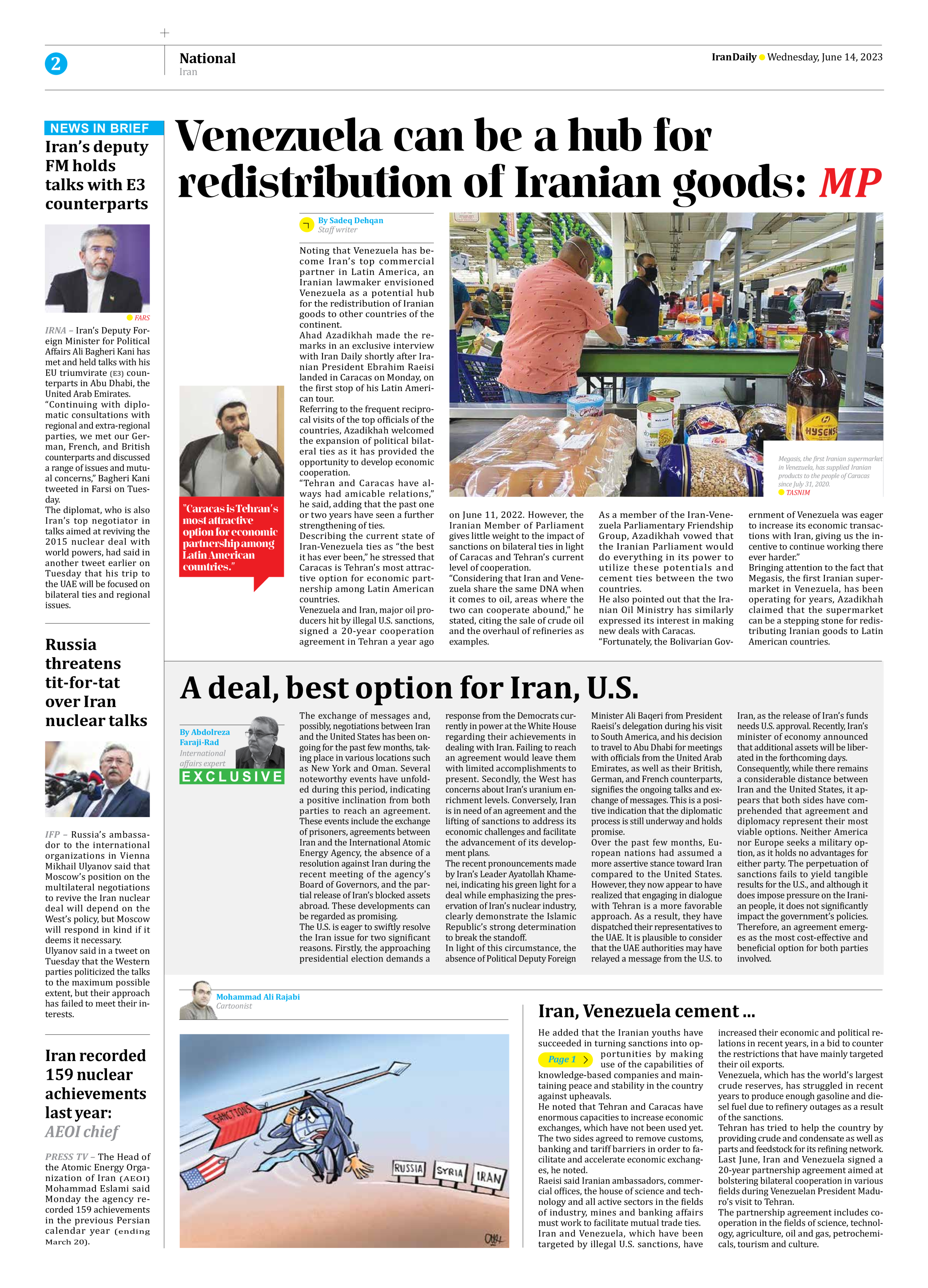
Iran, Venezuela cement ...
Page 1
He added that the Iranian youths have succeeded in turning sanctions into opportunities by making use of the capabilities of knowledge-based companies and maintaining peace and stability in the country against upheavals.
He noted that Tehran and Caracas have enormous capacities to increase economic exchanges, which have not been used yet.
The two sides agreed to remove customs, banking and tariff barriers in order to facilitate and accelerate economic exchanges, he noted.
Raeisi said Iranian ambassadors, commercial offices, the house of science and technology and all active sectors in the fields of industry, mines and banking affairs must work to facilitate mutual trade ties.
Iran and Venezuela, which have been targeted by illegal U.S. sanctions, have increased their economic and political relations in recent years, in a bid to counter the restrictions that have mainly targeted their oil exports.
Venezuela, which has the world’s largest crude reserves, has struggled in recent years to produce enough gasoline and diesel fuel due to refinery outages as a result of the sanctions.
Tehran has tried to help the country by providing crude and condensate as well as parts and feedstock for its refining network.
Last June, Iran and Venezuela signed a 20-year partnership agreement aimed at bolstering bilateral cooperation in various fields during Venezuelan President Maduro’s visit to Tehran.
The partnership agreement includes cooperation in the fields of science, technology, agriculture, oil and gas, petrochemicals, tourism and culture.







